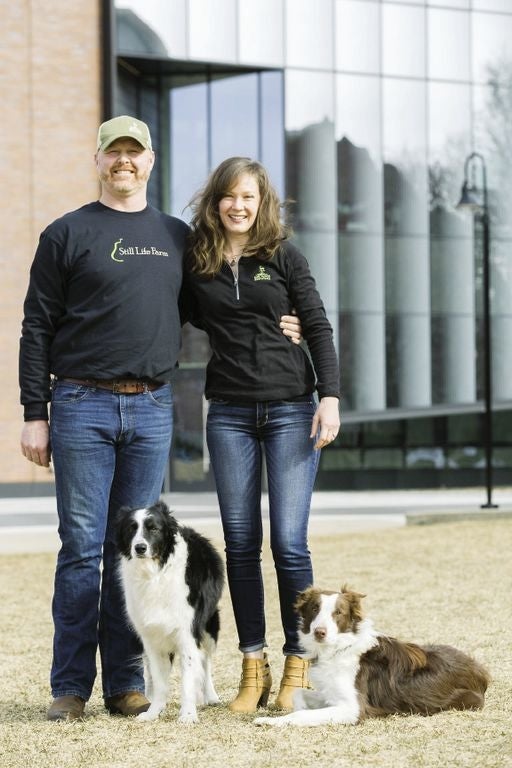The Stillmans turned a farming tradition into their own adventure
About 10 years ago, Curtis Stillman was searching for farmland to continue his family's farming lineage, but there wasn't much to choose from.
Then, he found 60 acres of farmland in Hardwick known as the Hardwick Poor Farm.
“I could afford it for what it was,” he said.
The farm, more than 100 years old, is named such because poor residents or those with disabilities came to the farm to live and work for free room and board. For about 20 years, the farm was maintained by an elderly man who let the farm fall into disrepair after the land became too big for he and his wife to maintain.
“It had plenty of acreage, but there was a lot of work to be done,” he said.
Before it was transformed into the Still Life Farm, Curtis and his wife Halley Stillman had to work to reclaim the farmland and remove the many small trees growing in the fields.
“We still have some clearing to do, but for the most part, we're up and running and we're starting to make some money off of our farm,” Curtis said.
After Curtis bought the farm, his father Glenn Stillman, owner of Stillman Farm in New Braintree, became the couple's backbone for a few years until more farmland was reclaimed, making Still Life Farm self-sufficient. The farming family still pitches in.
Everything grown at Still Life Farm was sold at the elder Stillman's farm.
“That really helped things come to fruition,” Curtis said.
Now, Still Life Farm in the eclectic farming community of Hardwick is one of Central Massachusetts' hidden treasures, complete with Lost Town Brewing, winter shares, fruits and vegetables and two border collies who have become as much the face of the farm as Curtis and Halley.
“They come everywhere with us,” Halley said.
The dogs – Spencer and Finn – are a common fixture at farmers markets, community-supported agriculture (CSA) pickups and the brewery. They create a very chill vibe.
“It's almost like having a dog takes the edge off of everything,” Halley said.
The brewery is the Stillman's most recent venture, having been in the works for more than two years. It opened right before Christmas.
The couple dreams of opening a distillery, too, but that is on hold while the brewery gets up and running.
What they love to do
The farm's artichokes are a favorite of Jared Forman, chef and co-owner of Worcester restaurants deadhorse hill and simjang.
When deadhorse hill first opened in 2016, Forman and other restaurant staff visited Still Life Farm to check out the crops, but they ended up staying for dinner with the Stillmans.
“They were just the nicest people,” Forman said.
Now, the restaurant is a CSA pickup location for the farm.
In addition to being down-to-earth people, Forman said the farm's products have a boutique-type quality to them. Forman couldn't find any other local farms growing artichokes until he found Still Life.
“I love being the exclusive dealer for Still Life's artichokes,” he said.
Forman credits the couple's passion for farming.
“There are a lot of people that do things as a means to an end,” Forman said. “They could do anything else, but farming is purely what they love to do.”
Forman wants to honor that honesty and tries to bring it to the restaurant, where servers are well informed about the ingredients and where they come from. On the back of menus is a list of people, farms and companies who have helped the restaurant earn its farm-to-table reputation.
In addition to the farm's tomatoes, beets, radishes and artichokes, Forman gushed about the Stillman's potatoes. A potato isn't just a potato, he says.
“There are a couple of places that I like potatoes from,” he said. “They're one of them.”
Halley and Curtis say they're known for their personalities as much as they're known for their vegetables, fruits, herbs and eggs.
It's important to have a connection with every customer and offer them not only great produce, but excellent customer service – even if that doesn't' end up being profitable.
“When we sell a product, we're not just selling that product,” Curtis said. “We're selling ourselves.”











0 Comments